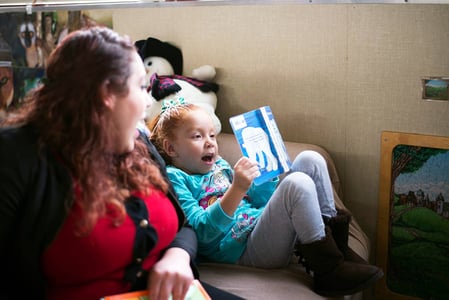
Over the last few weeks, I’ve interacted with teachers, coaches, and administrators as the “new” year begins for the adults and children in their care. What I am hearing has a common theme—frustration, disappointment, hope. What is going on? Well, maybe we can use the CLASS to think this through.
As we plan for the new children, new setting, new staff—there are a lot of moving parts. The truth is, time for intentional planning, reflection and considering the developmental needs of the children in our care is hard to find. I want to take a look at these moving parts with the hopes of helping us all ground ourselves in perspective. And while it’s hard to find the time, it’s really critical to ask yourself some questions. Try to remember, who they are? What is their reality?
Why don’t these kids know what to do? How do I help them understand? Does my vision for how children tell us what they need jell with how I respond? Try to remember that each child is an individual and they need support that meets their needs. Try to remember that each of us has our own story.
Now let’s imagine that you are 3 years old. Maybe you’ve been in early care since you were a baby, maybe this is your first group experience. Maybe your life experience has been one where someone helped you navigate your developmental needs, or maybe not. Maybe you are feeling a lot of big feelings: excitement (this could be really fun, look at all those cool toys!) or apprehension (wait, when do I get a snack, I’m hungry!) or confusion (what does “find your spot” mean anyway? I don’t see a spot, I see a colorful carpet). Does my teacher know what I’m feeling? Does my teacher see the world with my eyes? What if I make a mistake? What if I do the “right thing?" How do I know? Try to remember a time that you walked into an unknown situation. Maybe a new job. Did you need someone to orient you? How will you help these children know the answer? We need help and so do our children.
Breathe everyone. The first weeks of school are about guidance—showing the way, understanding the times of day. Moments of anxiety, moments of delight. As the adult, we have had the benefit of experience and we’ve learned from that. Our three year olds have been around for thirty six months. They are negotiating so many things. They want to please us. They are crushed when they get it wrong. What is it that you want them to experience during the day? Try to remember that they depend on us to make it all make sense.
So, how do we help? Be clear about your expectations. Be consistent in your responses. Plan for ways to help your children learn the rules. The first weeks should be all about learning the ropes. Be kind. Mistakes are embarrassing, humiliating, or maybe opportunities to learn. If your teacher helps you find the way without shaming you, by telling you what is the right thing AND WHY—your days become predictable, you can focus on the fun, your peers, your relationships. Try to remember that you are setting the stage for a child’s memory of their experience with you. Children are children and do not have the capacity to manage their emotions and behavior without your help.
Try to remember that the children will always remember how you responded.

